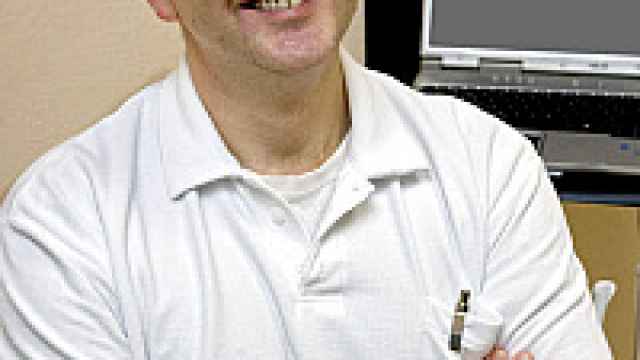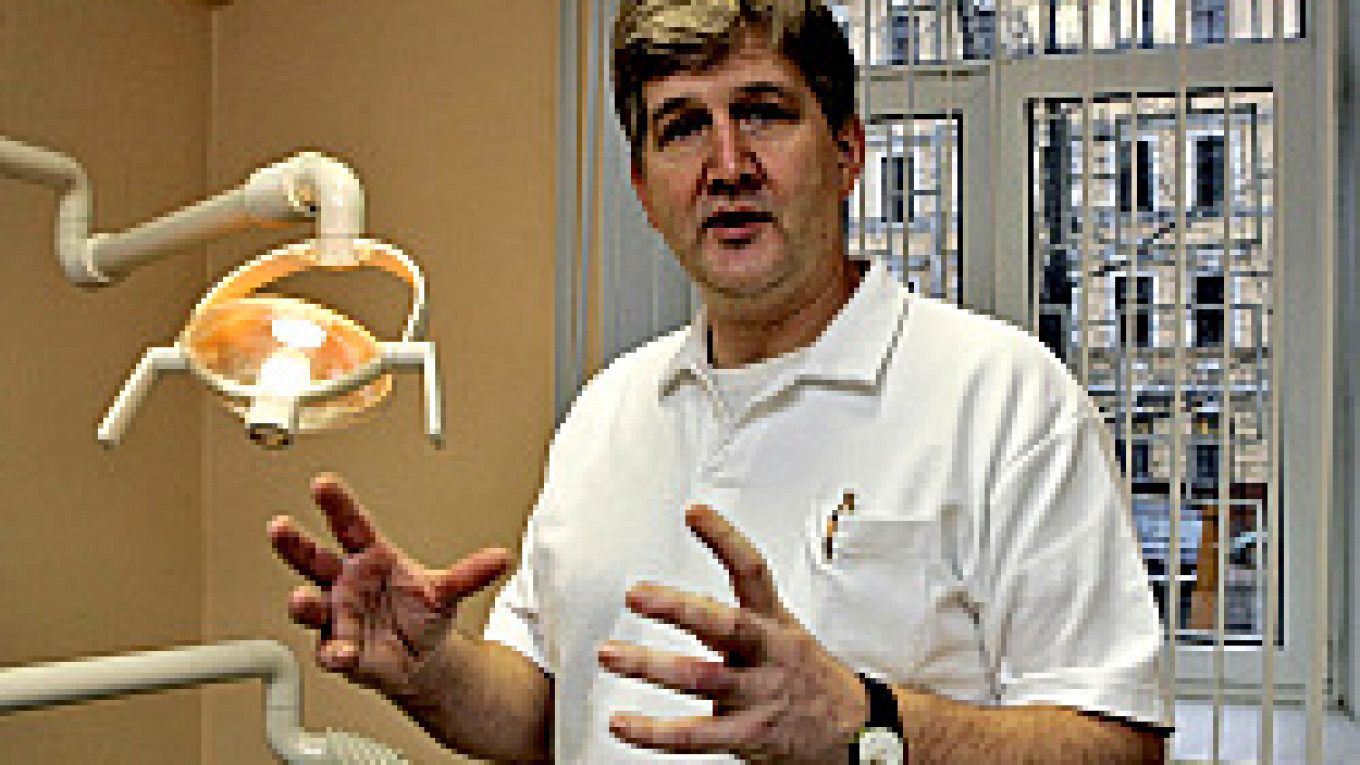In 1993, he and his wife, Anke, were living in Belgium with their three children when they made the rather unusual decision to relocate to the East Siberian city of Chita.
"We came to Russia to serve the Baha'i faith," said Grossmann, "to help support a newly established Baha'i community in Chita."
Grossmann, 44, was born in a small village near Frankfurt and studied for his dentistry degree in Aachen, Germany. He speaks German, English, Russian and French, and refers to himself as a self-supporting Baha'i pioneer.
"It's not like being a missionary who is trying to convince other people of his beliefs," he said. "Rather, a Baha'i pioneer makes information available to those who are interested.
"My plan when I came to Chita was to open a dental clinic and offer continuing education for dental school graduates," he added. "At that time in Russia, dental students didn't have access to the same information available in the West. Materials and dentistry tools were in especially short supply."
He ultimately found aid in the form of used dental equipment donated by the German Association of Dentistry. But there was a catch: the organization couldn't provide the $10,000 needed to ship it to Siberia.
"The only thing I could think of "was to go to Germany, buy an old truck and some other old cars in order to have a convoy, and drive the equipment back to Chita, which I did," Grossmann said.
That road trip lasted three weeks and involved more upsets and reverses than a Jackie Chan film. Yet even after this harrowing adventure, Chita bureaucrats and dentists continued their opposition to the first Westerner to live in their midst. Every effort was met with a lack of understanding or outright rejection by city officials, making it impossible for him to open his clinic. With no options left, and with more than two years and the last of his savings already invested in the effort, Grossmann turned his sights to Moscow instead.
It was with mixed feelings that he and his family finally left Siberia for the capital in 1995. By that time, the Baha'i community in Chita had grown, and they had made numerous close friends. But once he switched gears and moved to Moscow, things fell into place at lightning speed. He was offered a job at the European Medical Center, which included physicians and dentists in one building. That organization later opened a separate dental center next door.
"They said if I had a white smock with me, I could start at once," he said. "The next morning, I was already treating patients."
 Vladimir Filonov / MT Grossmann enjoys the professional challenges of running a practice in Russia. | |
"I like the variety of people," Grossman said.
"It's not boring. There are many tasks that in Germany I would not have. Professionally it's more challenging, more interesting."
His wife, a homeopath, works part time treating patients in the clinic as a separate practice. Two of their children have grown up and moved on -- one to a nongovernmental organization in Kiev and another to a Baha'i project in Zambia -- while the youngest attends the ninth grade in a Moscow school.
"He treats every patient as a member of his own family," said Oksana Shulga, a former employee who now works in the personnel department at the Baha'i World Centre in Haifa, Israel. "When you hear Dr. Grossmann speaking to his patient, you feel that it is more than just medicine; it is a sincere desire to help that generates somewhere deep in the doctor's heart."
But the hard reality of doing business in Russia has proved challenging. "Always work with a lawyer," Grossmann advised. "Otherwise you could get into trouble simply for not knowing the most recent laws."
Difficulties notwithstanding, Grossmann and his staff have extended their good intentions to orphaned children as well, treating them free of charge one day per month.
"We try to have fun and just play around with the kids," Grossmann said. "We also explain all the procedures to reduce their anxiety. One boy we treated later wrote me a letter saying he would like to become a dentist, too. These are really rewarding encounters, which make us feel we are doing the right thing sometimes."
A Message from The Moscow Times:
Dear readers,
We are facing unprecedented challenges. Russia's Prosecutor General's Office has designated The Moscow Times as an "undesirable" organization, criminalizing our work and putting our staff at risk of prosecution. This follows our earlier unjust labeling as a "foreign agent."
These actions are direct attempts to silence independent journalism in Russia. The authorities claim our work "discredits the decisions of the Russian leadership." We see things differently: we strive to provide accurate, unbiased reporting on Russia.
We, the journalists of The Moscow Times, refuse to be silenced. But to continue our work, we need your help.
Your support, no matter how small, makes a world of difference. If you can, please support us monthly starting from just $2. It's quick to set up, and every contribution makes a significant impact.
By supporting The Moscow Times, you're defending open, independent journalism in the face of repression. Thank you for standing with us.
Remind me later.


